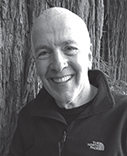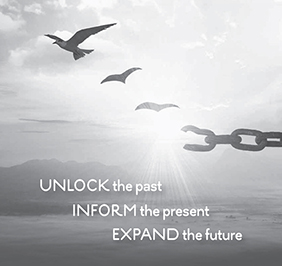
Donald Moss
National Meeting in New York City
APsaA’s National Meeting
February 11-16, 2020
Grand Hyatt New York
Donald Moss
Donald Moss, M.D., is the chair of the National Program Committee.

Donald Moss
At our February 2020 meeting, we will be marking the 100th anniversary of the publication of Freud’s “Beyond the Pleasure Principle,” in which he grimly tried to contend with the catastrophic trauma of his time, World War I. And his conclusions were indeed grim—repetition compulsion, death drive. Grim, yes, but unfortunately also prescient. We are now living in the midst of our own catastrophic traumata, our own contact with the workings of the repetition compulsion and the death drive: millions fleeing with nowhere to go, the climate becoming what it has never been, nations and neighborhoods bunkering themselves into racist, xenophobic enclaves.
Special Symposium
On Saturday evening, at our Special Symposium we will explicitly address the issue of thinking psychoanalytically within this howling surround. Our two esteemed plenarists, Robert Jay Lifton and Carol Gilligan, will be joined by Irma Brenman Pick, Lindsay Clarkson, Dorothy Holmes, Francisco Gonzalez, Luis Ripoll and Ann Pellegrini—representing five separate decades of analytic thinking—who will engage in a structured conversation, providing their own points of view on how they are grappling generatively, in both clinical and extra-clinical work, with “more than mind can endure.”
This roundtable discussion will focus on our own traumatizing surround—how can we as analysts best position ourselves in relation to the ungraspable excesses of racism, migration, and climate change. The aim will be to derail the false choice often put forth between the space of our consulting rooms and the space outside of them. Instead, we will be taking up the question of how clinical thinking can be enhanced and strengthened by a consideration of the ostensibly non-clinical. And, in a parallel move, we will be asking how our places in the non-clinical world can be enhanced and strengthened by the use of clinical thought and experience. Illusions have no useful future, including the illusion of a benign separation between inside and outside. Such a separation does damage to both sides of the artificial border.
Diversity Issues
In keeping with this effort to make this border more permeable, we will be offering two experientially grounded groups—each focusing on diversity issues; one on race, one on sex/gender. Each group will be limited to 24 people, who will be diversely distributed themselves—senior, mid-career and early career participants. We are hoping this experience is productive and, if so, this program will be replicated in the future.
Major Panels
Our four major panels will take up questions of widespread relevance and importance: “Between Insight and Change” (Ted Jacobs); “Motherhood: Risks and Resilience Under Traumatic Conditions” (Talia Hatzor); “Supervisor-Patient-Supervisee: A Complex Chemistry” (Nancy Kulish); “Addressing Ethics, Transgressions and a Culture of Silence in our Institutes” (Stephanie Schechter). Our University Forum continues its exploration of “Racism in America” with two papers—Dorothy Roberts and Evelynn Hammonds—and commentary by Dionne Powell, chaired by Beverly Stoute.

New Workshops
There will be new workshops, one on Psychoanalytic Teaching deriving from our Department of Psychoanalytic Education, and one from North American Working Parties, with two papers, one by Abbott Bronstein and Marie Rudden, another by Phillipe Valon. We have also restored a Two-Day Psychotherapy Clinical Workshop, to be chaired by Ann Dart.
And, of course, underpinning all of this you will hear the hum of more than 90 discussion groups, for many the foundation of our meetings, the context in which members, far-flung during the year, can convene and continue working on shared concerns.
I look forward to meeting and talking with as many of you as possible.